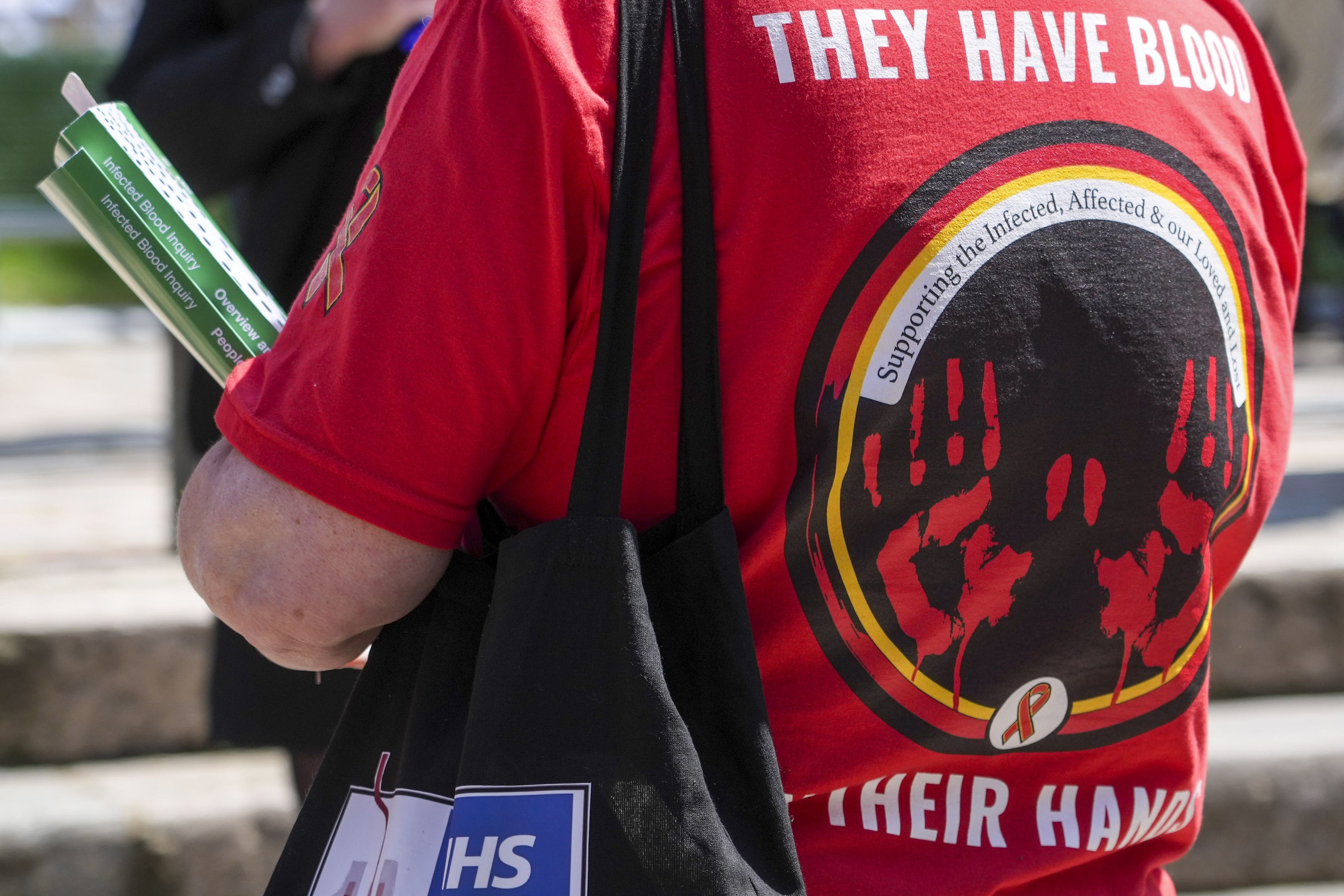The infected blood scandal is yet another tale of families who won’t quit in a dogged fight for justice
Hillsborough, the Post Office – and now the infected blood scandal – show the power of campaigners to exact justice, writes James Moore. But why must those in charge be dragged, kicking and screaming to the altar of competence?


When you go into surgery, the fact that you may require a blood transfusion is probably low on your list of concerns. This is a time-tested part of the process that ought to be one of the safer parts of it. Right?
Unfortunately, as the infected blood inquiry’s damning and deeply disturbing final report makes clear, this was not a guarantee. And during what proved to be a grim period in the history of the NHS and the British state more widely it would have been at the top of patients’ fears – if only they had known.
At the height of this disgraceful scandal (the report identifies the period between 1970 and 1998), blood and blood products contaminated with viruses including Hepatitis and HIV were routinely used in transfusions. Screening was not performed, even when the blood was imported or taken from high-risk groups such as intravenous drug users.
As someone who has had vast quantities of blood pumped into me after a serious road accident 13 years ago, reading Brian Langstaff’s report was a chilling experience – particularly when I read what happened to those with bleeding disorders such as haemophilia.
What went on at Treloar School in Hampshire, for example, beggars belief and is particularly gruesome. Just 30 of the 122 pupils (boys, mostly with haemophilia) who attended the school between 1970 and 1987 are still alive today.
While there, they were, in effect, used as lab rats in what can only be regarded as of the most grotesque violations of scientific and medical ethics since the Second World War.
Informed consent was not sought or given. They were treated with breathtaking callousness.
What I find particularly striking about the incident is just how regularly we have witnessed situations like it, both before and since. The Hillsborough disaster and the Post Office scandal are two of the most well known. If you have taken any interest in any of these you may have noticed a common thread: official denial, obfuscation, cover-up and – yes – outright lies told to those doggedly campaigning for justice.
Make no mistake, this most recent scandal would have remained under the carpet were it not for the efforts of those fearless and determined campaigners who refused to be silenced. They should not have had to scream and sweat to force an inquiry like this.
One of the most important parts of the report this week is its call for a “change in culture” at both the NHS and the civil service.
The British state calls for our patriotism and loyalty, only to repeatedly treat those outside of the establishment with a quite shocking level of contempt. This is particularly true of those of us with health conditions or disabilities.
The way I see it, the infected blood scandal is a glaring disability rights issue, as much as anything else. What happened at Treloar and elsewhere is the inevitable result of people being treated as less than human. I am afraid that this is still happening with alarming regularity, today. I have experienced it myself, especially at the hands of the NHS.
Changing an organisation’s culture is hard. It takes time and commitment and it takes will, particularly from those in leadership positions. But I’m sad to say I am not at all confident that the people who hold those positions today will step up. They have given every impression of needing to be physically dragged to the altars of competence and basic human decency, kicking and screaming if necessary.
Troublingly, the report quotes Dr Henrietta Hughes, patient safety commissioner in England. She said in a report reflecting on her first 100 days in post: “The culture is getting worse and unless leaders set out a strategic intention to listen and act, we are heading straight back to the days of Mid Staffs and other health scandals, severe harm, and death.” More than a year has passed since then.
Nor is it clear that the government is, even now, moving as quickly as it should. When I met Baroness Campbell, the cross-bench peer and founder of the disability rights organisation Not Dead Yet, a few months ago, she talked to me about her first husband who she lost to this scandal when he was just 32 years old. A haemophiliac, he, too, had been treated with contaminated blood products.
“Whilst it [the government] confirms there is ‘a moral case for compensation’, it continues to prevaricate on putting words into action and finishing the job,” she said in response to the report.
“Warm words from ministers ring hollow when the machinery of government defers final payments to the hundreds of shattered families. Financial compensation will never fill the void left by terrible memories and searing flashbacks. But it will help make life a little easier. Now is the time to finish the job.”
Indeed it is. It is also time to make a concerted effort towards changing the culture of organisations like the NHS and the civil service. We must force them to become fit for purpose to avoid a repeat of this monstrous scandal.






Join our commenting forum
Join thought-provoking conversations, follow other Independent readers and see their replies
Comments